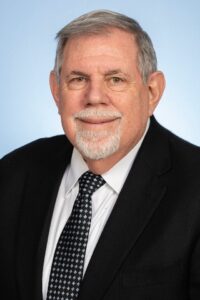Q&A with Dr. Samuel Dorn: APEC2025 PanEndo in Cairo
 Compiled by Rae Burach
Compiled by Rae Burach
Dr. Samuel Dorn is the President of the Asian Pacific Endodontic Confederation (APEC). He is the Past President of the AAE (2002-2003), the International Federation of Endodontic Associations (IFEA, 2014-2016), and the Florida Association of Endodontists, and a Diplomate of the American Board of Endodontics. Dr. Dorn has been a revered educator and leader at several institutions and was the AAE’s 2013 Edgar D. Coolidge Award recipient.
We spoke with Dr. Dorn about his role as APEC President and what attendees can expect at APEC 2025 PanEndo. The conference will take place December 3-5, 2025, in Cairo, Egypt. For more information and to register, click here.
AAE: When did you join the APEC and how did you become involved in volunteer and leadership roles?
Dr. Samuel Dorn: The Asian Pacific Endodontic Confederation (APEC) is an organization that is similar to other international endodontic groups such as the International Federation of Endodontic Associations (IFEA), the Societie Endodoncia de Latin America (SELA), and the European Society of Endodontology (ESE). These are groups of national endodontic societies, which means that all members of the national society, such as the AAE, are automatically members of the international group.
The AAE joined APEC in 2003, when I was AAE President, at the urging of the Canadian Association of Endodontists (CAE), since we were part of the Pacific Rim. I became involved in volunteer roles when I graduated from my endodontic residency and was asked to help in local organizations such as the South Florida Endodontic Study Club. This led to the Florida Association of Endodontists and to the AAE. I didn’t know how to say “NO.”
AAE: You have led many endodontic organizations in the past, including the AAE and IFEA. How have those experiences prepared you for your role as APEC President?
Dr. Dorn: My first international meeting was the first-ever IFEA meeting in Mexico City. There, I met many talented endodontists from all over the world—primarily Europe and South America—many of whom had trained in the United States but brought unique perspectives and skills from their own countries. That experience quickly taught me that American endodontists are not the only high-caliber practitioners in the field.
Since then, I’ve attended and lectured at numerous international endodontic meetings, exchanging ideas and techniques with colleagues from across the globe. While serving as a Director of the ABE, I even had the opportunity to help dentists in other countries gain recognition for endodontics as a specialty. These experiences broadened my understanding of the specialty, sharpened my leadership skills, and strengthened my belief in the power of global collaboration.
AAE: From your perspective, why are international organizations like APEC crucial to the evolution of our specialty?
Dr. Dorn: People are the same everywhere—teeth and pulpal tissues don’t change based on geography. What changes is how we approach diagnosis, treatment, and innovation. International organizations give us the chance to share research, compare techniques, and learn from one another’s strengths.
Personally, I’ve learned SuperEBA techniques from Dr. Pepe Oynick in Mexico, bone grafting from Dr. Gabriel Pecora in Italy, and early NiTi instrument applications from Dr. Henry Kim in South Korea. These exchanges not only improve patient care but also accelerate the pace at which our specialty evolves worldwide.
AAE: What can attendees expect from the combined APEC2025 and EAE’s PanEndo: From Africa to the World?
Dr. Dorn: Africa currently does not have a continent-wide endodontic organization—yet. When I chaired IFEA’s Education Committee, I was invited to help establish an endodontic department in Central Africa, where none existed. With the help of my resident, Dr. Collins Okwen, we founded the Department of Endodontics at Benin University. Later, as IFEA President, I was proud to hold our meeting in South Africa, home to many exceptional endodontists.
This combined meeting will give attendees a truly global perspective, with leading voices from Europe, Asia, the Pacific, and hopefully many from Africa. My hope is that the knowledge and inspiration gained will encourage the formation of a unified African endodontic body—ultimately helping to preserve more natural teeth and improve oral health across the continent.
AAE: What are you most looking forward to at APEC2025 PanEndo?
Dr. Dorn: Egypt is uniquely positioned at the crossroads of Europe, Asia, and Africa. I’m excited for the opportunity to bring together practitioners from these regions—and, ideally, from the Americas as well. The more diverse our gathering, the richer the exchange of ideas. Ultimately, my goal is simple: to work together to save more teeth and, in doing so, contribute to a healthier world.
